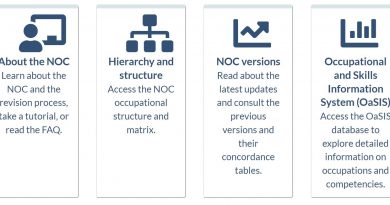RESOURCES FOR BC WORKERS
RESOURCES FOR B.C. WORKERS
Resources and tips for job seekers
- The WorkBC job board has job postings and career information.
- The federal Job Bank website also has job postings and career information.
- If you need to find skilled employment in B.C that uses your education and experience from your home country, the Career Paths for Skilled Immigrants program may help.
- The Skilled Immigrant InfoCentre has information and employment programs.
- The NewToBC website links many of the resources available through B.C.’s network of libraries.
- Grow your network and tap into job vacancies not advertised by employers through these networking opportunities.
- The Public Service sector is B.C.’s largest employer. Visit the website to learn about career opportunities and see job postings.
- Tell friends, relatives, teachers, neighbours, and counsellors that you are looking for a job. They may share ideas or introduce you to employers.
- Look for in-person or online groups that are related to your job or occupation.
- Build your network with internships, apprenticeships, or classroom cohorts.
- Your local newspaper may have job postings. Read the Classified section. You can also look in the Classified section on the newspaper’s website.
- Some businesses post signs on doors and windows looking for workers. Many shops, cafes, and restaurants do this. Look for signs saying, “help wanted”, “hiring”, or “seeking”. Businesses might also post signs at libraries, recreation centres, and grocery stores.
- If there is a company you like, you can ask if they are hiring. You can visit their office, call on the phone, or send an email.
- Many large companies have special departments (teams) that hire new workers. This is called the personnel or human resources (HR) department. For example, a hospital, hotel, or school may have an HR department. To find jobs in large companies, contact the HR department.
Visit WorkBC for information on B.C.’s labour market and economy, including:
- the employment outlook for the next 10 years
- high-opportunity occupations
- jobs that have the most job openings now and for the near future
- industry, sector, and regional information
Resources for temporary workers
- Visit the Migrant Worker Hub. This resource includes many links and important information that may be helpful for temporary workers in B.C., and includes a map of services available across the province.
- Find a settlement agency near you that works with temporary residents. They may have workshops about job search skills, employees’ rights and responsibilities, and Canadian workplace culture. Settlement agencies have workshops in many languages.
Resources for permanent residents
- If you need to find skilled employment in B.C. that uses your education and experience from your home country, the Career Paths for Skilled Immigrants program may help.
- Talk to your local settlement agency. They may have workshops about job search skills, employees’ rights and responsibilities, and Canadian workplace culture. Settlement agencies have workshops in many languages.
- Find a settlement agency near you.
Resources for owning a business in B.C.
There are many rules and laws for people who have a business. For example, the Employment Standards Act tells you how to treat people who work for you. Businesses must register with the government. You must follow strict rules for managing money. You must report what you earn and what you spend. In many business sectors, you may need to get special government licences and to follow special rules. There are programs that can help you.
- Small Business BC provides information to help you start or grow a business. You can learn about finance, sales, marketing, imports, exports, regulations, government help, and training. You can meet with a business advisor and join online programs.
- B.C.’s Small Business Branch provides resources to help you start or grow a business.
- WorkBC’s Self-Employment Services can help you develop your skills and start your own business. Visit your local WorkBC Centre and find out if you are eligible.
- WorkBC also has information on business resources and support for new business owners.
- The Skilled Immigrant InfoCentre has information, resources, and programs for new immigrants who want to start a business. Find information online or visit in person. All services and resources are free.
- Some universities and community colleges offer courses to help you start your own business. Find out if there are any business courses at a college or university near you.





